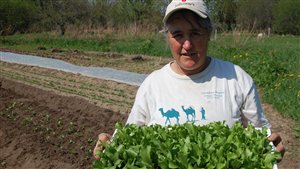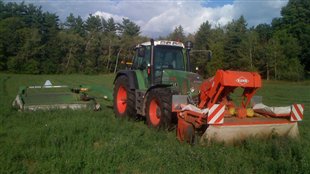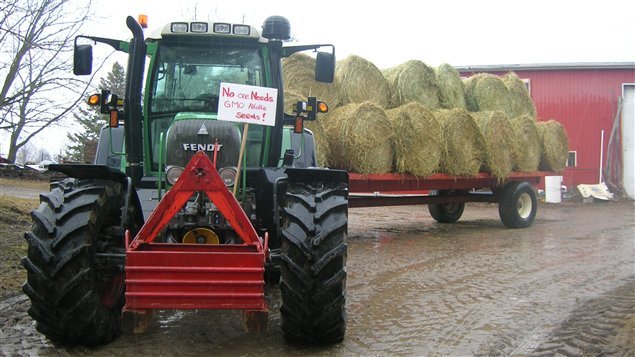The issue of genetically-modified food crops continues to be contentious, in Canada, and elsewhere.
Canada’s National Farmers Union (NFU), along with some environmental groups, has come out against genetically modified alfalfa. A type of herbicide-resistant GM Alfalfa has been approved for Canada, although it is not yet being marketed.
Ann Slater is a small-hold farmer with about 10 acres of mixed vegetables and a flock of sheep. She is also vice-president of policy for the National Farmers Union.
ListenThe National Farmers Union represents thousands of farmers of all types from all across Canada.

They are concerned about the possibility of genetically modified alfalfa seed being sold in Canada.
Alfalfa is one of the most common field crops grown in Canada and although sprouts are sold for human consumption, by far the greatest use of the crop is as high-protein food source for livestock such as dairy and beef cattle, lambs, poultry, and pigs. Alfalfa is also tilled back into the ground as a rotated crop to replenish nutrients in the soil to aid different crops the next season
GM alfalfa created by Monsanto and marketed by a branch known as Forage Genetics International, is approved for sale and registered in Canada but FGI chose not to market it here this spring.

The modified seed is designed to be used in conjunction with Monsanto’s “Roundup” herbicide, in that the herbicide kills weeds but does not affect the modified plants.
One concern is that the GM plants could cross pollinate neighbouring fields and that the farmers could lose their organic certification and markets in Canada along with sales to Japan and to Europe where GM products are not allowed.
Another concern is the increasing presence of commercially patented seed, with associated costs and issues of rights over reselling of subsequent seed from crops. There is also concern that using “roundup” on yet another and such a major crop would enable weeds to build up resistance and result in still higher herbicide costs.

In a press release in March of this year, Jan Slomp, NFU President and Alberta dairy farmer said “The federal government should de-register all varieties of RR alfalfa.”
“Before approving any more GM crops, the government must revamp its process so that it conducts a full assessment of the environmental, economic and social impacts based on public research and input from a cross-section of farmers and Canadians, rather than simply relying on information provided by the seed companies seeking regulatory approval for their products.”







For reasons beyond our control, and for an undetermined period of time, our comment section is now closed. However, our social networks remain open to your contributions.